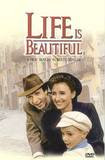
Today I was reading from a Suzuki piano book that I bought when Morgen was taking lessons a few years ago. It had a great chapter on motivating students and as I was reading I just kept thinking how great the ideas were and how easily they could be applied to teaching my boys and my skating students as well. So I made a list of them and some of the key points in the book for future reference.
Motivation
As motivating students is probably the greatest challenge and one of the most important responsibilities a teacher has, it is also one of the keys to human accomplishment. A desire to learn and practice needs to be developed. People do the best when they are doing what they enjoy and sincerely want to do.
Love & Respect
First and foremost - “To read a child’s mind, a teacher must first capture his heart.” – Dr. Ginnott
Honesty
A relationship without trust is not only non-productive, it is ultimately destructive.
Patience
Webster defines the word patience as: “bearing or enduring pains, trials or the like, without complaint or with equanimity”. Patience may often be a quality of good teachers, but the teacher who loves and respects students and who reacts with understanding finds that dealing with children is a joy and not a trial!
Empathy
Being able to sense and respond to the needs of the student with gentleness and understanding will help the lesson be more productive. Often an incident which seems trivial to an adult is serious to a child. "Nothing is little to him that feels it with great sensibility." - Dr. Samuel Johnson
Enthusiasm
The final and very necessary attitude a teacher must have in motivating children is enthusiasm. How can we excite a child if we ourselves are unexcited? Our spirit and enthusiasm are the greatest attributes we can cultivate in order to motivate our students.
Motivational Tools
Praise
A teacher can also use rewards as a simple motivational tool and praise is the best reward we can give. We can always tell a child what we liked about a performance, and we can always find something, no matter how small. However, always be honest with praise, never praise a child for something not done well. Children have high standards for themselves and lying to them will only destroy your own credibility.
No Criticism
Children need help and guidance, not criticism. One of the greatest obstacles to learning is a child's fear of humiliation either by criticism or failure.
Material Rewards
In addition to praise, we can sometimes use material rewards.
Humor
Children respond positively to laughter and fun, and if a teacher creates a happy atmosphere, the student will enjoy the lessons and learn better.













